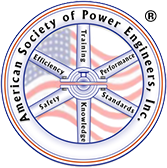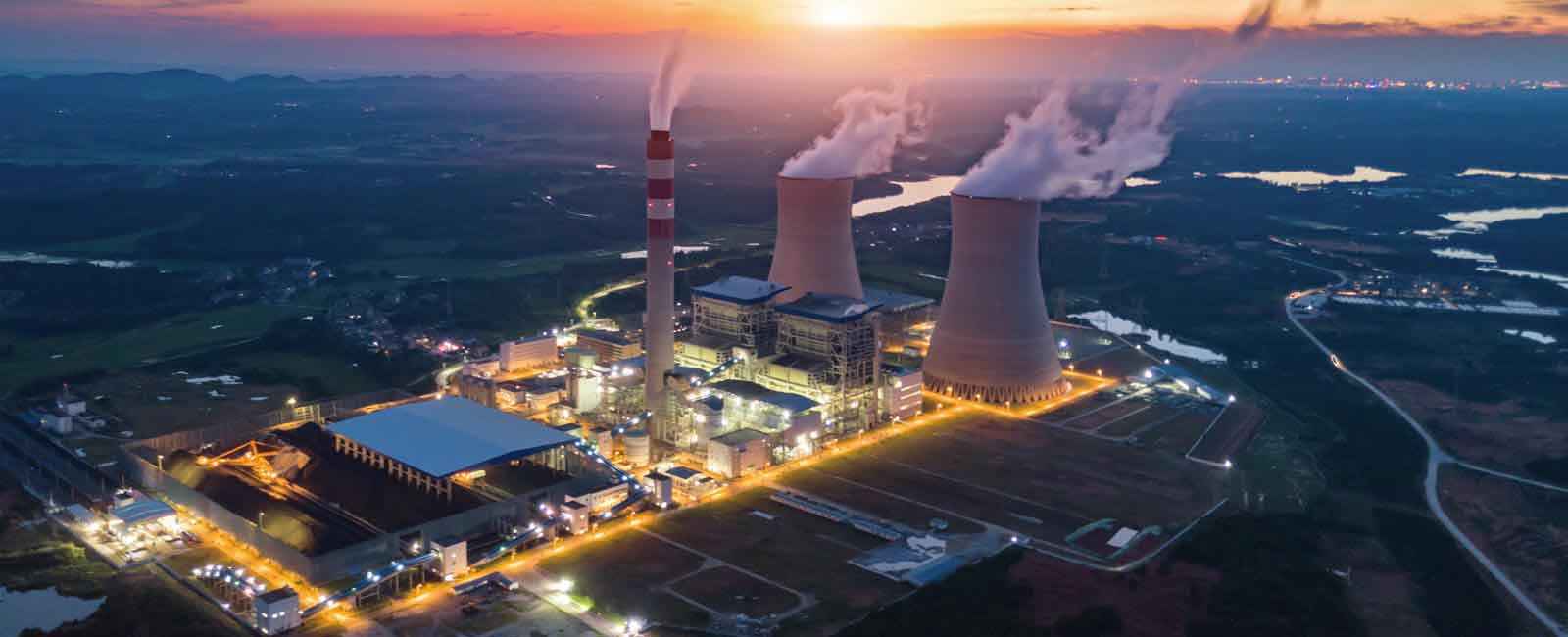Establishing National
Standards for Power Engineers.
Facility Stationary Engineer Technician First Class
ASOPE® offers an opportunity to obtain a Facility Stationary Engineer Technician - First Class license. A list of qualifications that are required to receive your Facility Stationary Engineer Technician - First Class license is outlined below. Requirements include a minimum age of 22 years, a high school diploma (or GED equivalent), and 3 years of minimum experience as a Second Class Facility Stationary Engineer Technician.
If all qualifications are met, you will be required to schedule an exam. The exam consists of a wide range of curriculum, including, but not limited to, facility energy efficiency, safety, and environmental codes, hot gas bypass valves, and condenser pressure regulating valves. This examination will be part written test and part multiple choice with 100 questions. Upon completion of the Facility Stationary Engineer Technician - First Class license exam, an ASOPE® representative will notify you of a "pass" or "fail" status. If you fail, you will be offered additional opportunities to retake the exam. Please review our Failed Test Procedures to learn more.
If you have any questions or concerns regarding the Facility Stationary Engineer Technician - First Class license, please contact the ASOPE® national office.
Test Fee $45.00
Requirements to take the test
- Minimum age - 22
- Education - High School Diploma, GED, or Equivalent
- Experience - 3-years as a 2nd Class Facility Power Engineer Tech
- Must have the EPA 608 Certification Type I, Type II, Type III, and Universal
Examination - Written Test 100 Question Multiple Choice
Licensed to Operate after successfully passing the test:
- Maximum Boiler Size (Unsupervised) HP - 2000 BHP / LP Unlimited BHP/ HTW Unlimited
- Maximum HVAC – Unlimited
The test will include competency and proficiency questions in the following areas
Curriculum of a Facility Power Engineer Tech Second Class, in addition to the following:
- Mathematics and Calculations
- Maintenance Principles, Service and Repair Principles
- Safety
- Precision Measurement, Print Reading
- Tools
- Rigging, Lifting, Ladders, and Scaffolds
- Mechanical Systems, Electric Systems
- Electronics and Programmable Controllers
- Engine Driven Compressors and Pumps, Pumps (Water/Fluids)
- Fluid Power Systems
- Troubleshooting
- Advanced Boiler Systems, Boiler Fittings, Boiler Operation and Principle, Steam and Hot Water
- Boiler Systems Boiler Water Treatment
- Emergency Diesel Generator Operation and Maintenance
- Pump and Valve Maintenance
- Facility Energy Efficiency
- Thermodynamics, Heat Transfer Theory
- Air Compressor Operation and Maintenance, Pneumatic Circuitry
- Facility Air Quality Control
- Safety and Environmental Codes
- Facility Maintenance Management Systems
- Principles of heat and temperature measurement
- States of Matter
- Gas Laws - Boyle’s Law, Charles’ Law, Dalton’s Law, General Principles of Perfect gases
- EPA Universal Certified for Safe Handling, Transportation, and Disposal of Refrigerants
- Hydrocarbon Refrigerant, Hydrocarbon Refrigerant Oils
- Refrigeration Systems, Heating, Ventilation, and Air Conditioning Systems
- Ammonia (Refrigerant), Lithium Bromide (Absorbent)
- Principles of Pressure and Pressure Measurement
- Facility Building Heating and Cooling Systems Control Optimization
- Facility Refrigeration Systems Operation and Maintenance
- Advanced Refrigeration, ACR System Service
- Refrigeration Cycle (Compression/Hydrocarbon Refrigerants)
- Refrigeration System Components - Evaporators and Condensers, Heat Exchangers
- Compressors (Electric Motor or Engine-Driven)
- Reciprocating, Screw, Scroll, Rotary-Helical, Centrifugal
- Metering Devices (Direct Expansion/Hydrocarbon Refrigerants)
- Capillary Tube, Orifice, Expansion Valves (TXV, AXV, TAXV)
- Hot Gas Bypass Valves, Condenser Pressure Regulating Valves
- Air Conditioning Systems
- Package Systems (Gas/Electric, Heat Pump, Oil/Electric, etc.), Window Units, Portal Units (Thru-The-Wall), Rooftop Units (HVAC, Vav), Unitary Systems (Split Systems), Condensing Units, Air Handling or Fan Coil Units, Refrigerant Piping, Line Sizing, Installation
- Heat Pump Systems
- Air Source, Water Source, Ground Source, Supplemental or Cascade
- Cooling Towers /Evaporative Coolers
- Thermal Storage Systems
- Refrigeration Systems (Commercial)
- Coolers and Freezers (Walk-In, Reach-In, Display), Refrigerated Air Dryers and Ice Machines
- Psychometrics, Temperature and Humidity Control Systems
- Air Filtration and Duct Cleaning, Air Quality Measurement and Control
- CO2, Co, O2, 0 & Contaminant Testing
- HVAC Electrical Fundamentals, HVAC Electrical Components
- Wiring Insulation and Sizing, Fuses, Breakers, Starters – Low Voltage (480 Volts Or Less), High Voltage (208 Through 4,800 Volts Or More), Automated Switchgear, Current Sensing Meters, and Motor Control
- Electromechanical Controls
- Pneumatic Controls
- DDC Controls for Building Automation
- Computer Literacy
- Electric Transformers
- DC Power Supplies and Converters, and UPS Systems
- Variable Frequency Drives
- Electric Motors (AC And DC)
- Troubleshooting ACR Electrical Systems
- Personal Protective Equipment, Lockout/Tagout Practices, Meter Categories, Test Procedures, Electrical Diagrams, Schematic (Ladder) Diagrams, Pictorial Diagrams, Installation Diagrams, Fundamentals of Electrical Trouble Shooting, Trouble Shooting Electrical Components
- System Base Lining, Service Equipment and Practices, System Start-Up, Operational Checks
- Preventive Maintenance and Mechanical Troubleshooting


